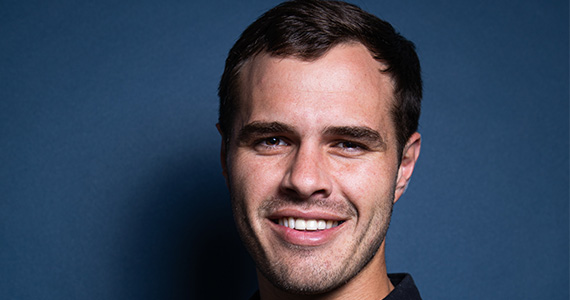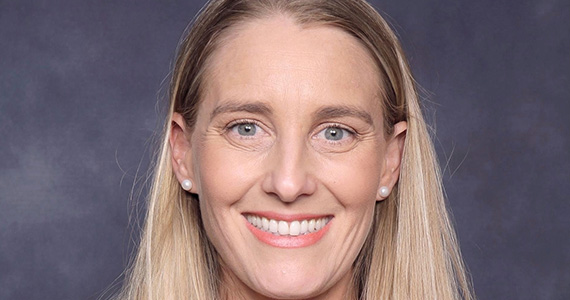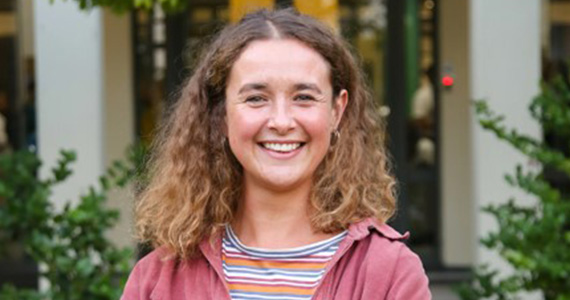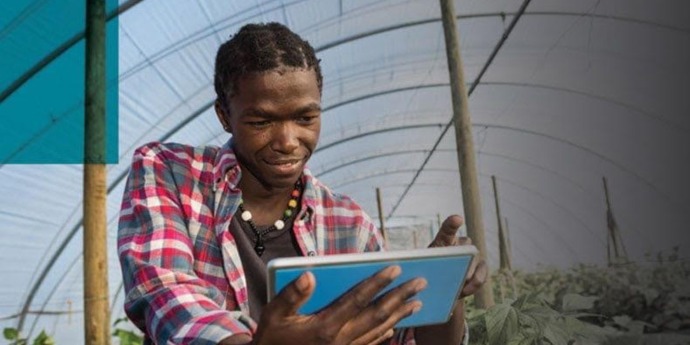Funding your studies
Exploring some funding options
We understand that funding your studies can be a challenge. Whether you're considering employer funding or seeking scholarships, we're here to guide you through the process.
What are my funding options?
The UCT GSB is determined to provide talented candidates the opportunity to join us. Because we believe that every person deserves to change the world with new ideas, no matter what their financial circumstances.
Here are some options to help you secure the funding to join our academic programmes.
Employer Funding
Employer funding is an excellent first option – here's why, and how, you can motivate sponsorship to your organisation.
Many employers offer funding opportunities for employees pursuing further education, recognising the value of investing in their professional development. Our employer funding guide provides comprehensive information on how to approach your employer about funding your studies, including tips for preparing a compelling proposal and navigating conversations with your employer about financial support.
Company funding is an excellent option for those who wish to further their qualifications but can’t cover all of the costs. Here is your comprehensive guide to getting your employer to pay for your professional enrichment at the UCT Graduate School of Business. Embarking on a learning journey at the UCT Graduate School of Business (GSB) is a transformative decision, one that can propel your career to new heights. But, as with any significant investment, paying for your studies is often a primary concern for many prospective students. One avenue that is worth exploring is employer-sponsored education.
Employer funding can be a valuable resource to support your professional development and advance your career. A qualification from the UCT GSB can be a game-changer – both for yourself and your organisation. It’s a journey of growth, not just for the employee but also for the organisation. With thorough research, a compelling proposal, and open communication, you can make this vision a shared one with your employer. By following these steps and effectively presenting your case, you can increase your chances of securing employer funding for your MBA at the UCT GSB and take your career to new heights.
A word of advice

Derusha Naidoo
Role and career trajectory at a company are key considerations. Clearly demonstrating intentions to progress into senior leadership within your company significantly impacts the decision to grant funding. Also, the company needs to see the ‘business case’ in providing the funding to a candidate and really see how that value will be brought back into the company by that candidate through their role.

Ochse Lombard
What I did was basically calculate the possible investment return to the organisation and posed it to my chairman. He immediately agreed that it makes sense and approved my request. No one says no to a good investment, if they can afford it.

Justine Liebenberg
First and foremost be clear on why you want to do it. It is a long, and time intensive journey and requires oodles of dedication and commitment. If you have this personal clarity then motivating your employer to support you will come naturally. Most employers want employees who want to develop themselves and have the work ethic and conviction to make it happen.
Third-party funding
It may well be worth exploring offerings from other educational funding and banking institutions that offer postgraduate student loans
Several organisations offer bursaries and funding for deserving and enterprising individuals.
While these are in no way affiliated with the UCT GSB, they may well be a viable and valuable source of partial or full funding for your further studies, if you’re the right fit for your academic programme, you could look into the following sources for postgraduate bursaries:
Prodigy Finance international student loans
Prodigy Finance offers borderless financing to international students. There is no need to provide guarantors, collateral, or cosigners. Furthermore, there are no hidden fees! Our loan facilities include no penalties for early repayment and a 6-month grace period after graduating from full-time study.
Realise your dream with UCT GSB.
45000+ students funded globally Master’s loan starts at 9.09%
Learn more about Prodigy Finance.
Courses we support:
- CEMS Master of Management Specializing in International Management
- MBA
Whether you’re planning a specialist or generalist MBA, we can tailor a funding solution that meets your needs. We will avail relevant resources at your disposal.
Get an Education Loan from Capitec to pay for tuition and educational expenses at any South African-registered institution.
Absa study loan offers you the opportunity to borrow funds at a low interest rate to support yourself or someone you would like to benefit from study funding.
Find out more about the study loan, it could be the best thing for your future.
Finance your studies by applying online for a student loan. We've made it easier for you to get access to study equipment such as laptops/tablets with our new offering.
Find out more about Standard Bank student loan.
An FNB Student Loan offers you the help you need
Reach your potential while enjoying the benefits of a personalised interest rate and an interest-only repayment, for a 12-month period.
An FNB Student Loan can be used for tuition fees, accommodation, equipment, other study material and devices.
Apply anywhere and at any time, learn more about the loan.
Go further with a Nedbank Student Loan
With Nedbank you can have the peace of mind of knowing that your fees, books, accommodation and other costs are covered while you focus on your studies.
Find out everything you need to know about a Nedbank Student Loan.
Scholarship Funding
The UCT GSB offers scholarships to all African applicants who can demonstrate financial need
We are committed to assisting deserving individuals by offering a number of scholarships each year. With a verified demonstration of financial need, our scholarships could provide financial assistance to help you achieve your academic aspirations.
Scholarships are available for the MBA Full time programme.
The scholarship application process is integrated with the programme application process, and only applicants with a successful application for a programme will be shortlisted for a scholarship.
All scholarship applicants are required to complete their full application, whether or not their application is successful.
We understand that most scholarship applicants base the possibility of doing a programme on a successful scholarship application, but our scholarship grants depend largely on the quality of the programme application.
Our Funders:
All your scholarship questions answered
Scholarships are available for African citizens who can demonstrate financial need. This involves declaring your income and expenses, as well as your assets and liabilities. Candidates are also required to declare potential sources of additional funding, such as company, government or bank loans.
Applying for a scholarship is one of the steps of our general programme application. Should a candidate opt for financial assistance, a further step will be made available on the applicant’s personalised portal. It’s important to note that the programme application and the scholarship application are separate and they are evaluated by different committees.
Scholarships are awarded after a successful programme application. Once a student has been accepted onto a programme by the Admissions Board, the scholarship application is reviewed by the Scholarship Grading Committee. This is done in several rounds by shortlisting candidates, and the application for a scholarship is seen as distinct from the general application.
Candidates who can demonstrate a commitment to building a new and better world, a passion for social entrepreneurship, and a flair for innovation are given preference. Our aim is to empower those who are bringing about positive change, and manifesting our institutional values as a lifelong mission.
There is a noted preference for funding full-time students when it comes to the MBA scholarships. The primary reason for this is that full-time students have willingly removed themselves from the labour force for the 12-month period, foregoing their salary. Given that the allocation of scholarships is based on financial need – within the context of full-time studies and the associated temporary exit from the labour force – this is often where we see financial need being the greatest.
There is no set number of scholarships that are awarded on an annual basis. The scholarships are awarded based on financial need and this is in many cases dependent on the pool of scholarship applications.
All scholarships are for the tuition costs of the programme, however the extent of cover (i.e., partial or full scholarships) are entirely dependent on financial need and the type of scholarship awarded. Scholarships do not cover travel, accommodation, and meals.
Hear what our students have to say
Our scholars

Ashleigh Heese
Working with an education lens in chronically under-developed service sectors, such as health and literacy, has allowed Ashleigh to approach inclusive innovation as a two-fold challenge: who can access essential services, and who has the support and enabling environment to design and deliver those services. Her belief in the need to broaden the range of meaningful and accessible learning opportunities in order to broaden the range of accessible community services is informed by a long-held family tradition of viewing education as a pathway to social justice.

Kudakwashe Kandemiiri
Kudakwashe is a Zimbabwean technologist, volunteer, and mentor with a vision of developing successful tech-driven businesses across the African continent. He currently leads the development of tech social-impact tools designed to improve the lives of workers across global supply chains. Kudakwashe believes that the Bertha Centre Scholar community offers platforms for active and intentional collaboration on issues that are affecting the African continent - through which one can champion the development of solutions to uniquely African challenges, to improve the continent’s socio-economic well-being.

Iris Nxumalo-De Smidt
Iris identifies as a ‘feminist systems innovator’, who leverages facilitation, research, strategic grant-making, story-telling and project management to support social justice and systems change. Her work seeks to advance the strategy to nurture an innovative and inclusivesociety, in part through co-facilitating the DGMT Fellowship for Organisational Innovation and managing the Sustainable Financing for Social Welfare Services initiatives. Iris is passionate about the role that civil society plays in supporting systems change and seeks to position her emerging body of work at the intersection of feminist activism and social innovation.
Ideas Exchange

GSB Foundation Launches New Scholarship for Black Women
The Farai Cheryl Shonhiwa (FCS) Scholarship for African Women is a new initiative within the GSB Foundation, celebrating the legacy of Dr Farai Cheryl Shonhiwa. Designed to empower African women, this scholarship provides financial support for the full-time MBA programme at UCT Graduate School of Business. Contributions to the FCS Scholarship will help continue Farai’s vision of fostering leadership and transformative impact across the continent.
Read Article
UCT GSB Welcomes Prodigy Finance's Blended Finance Programme
Prodigy Finance has launched a groundbreaking Blended Finance programme aimed at providing African students with greater access to international education. This initiative aligns with the UCT Graduate School of Business's mission to empower Africa’s future leaders, offering an innovative financing solution that breaks down financial barriers and fosters diverse, globally minded leadership across the continent.
Read Article
How to motivate your employer to fund your studies
Company funding is an excellent option for those who wish to further their qualifications but can’t cover all of the costs. So we’ve compiled a comprehensive guide to getting your employer to pay for your professional enrichment.
Read Article
Scholarship programme to foster a more just, inclusive and sustainable Africa
The Bertha Centre for Social Innovation & Entrepreneurship aims to support a cohort of new leaders across the African continent with its scholarship programme, commencing in 2021.
Read Article